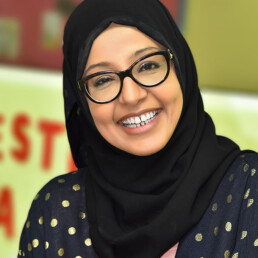
Written by Fatma Khalid
A lot has been written recently about diversity, especially in education. Whilst diversity has been “entertained” by a lot of administrators and specifically policy makers into bringing the novelty idea to practice, there is still a lot to be done in terms of making our society and specifically our educational sector more diverse.
Majority of times I have seen students, even my own children, being confused about their culture and identity specifically for children who are born and raised in countries that are not their countries of origin. The implications of this reaches out to sometimes loss of identity or even worse the breed of inferiority that we find most common even here in the UAE where certain cultures and nationalities are often viewed as being better because of how they are portrayed or advocated. This is further challenged by the market niche in the UAE which gravitates towards recruiting teachers of certain nationalities further compromising the practice or need for diversity and inclusivity. Children grow up feeling that the most knowledgeable and people holding high offices are isolated to only ‘a certain kind’ which itself is a huge impediment to ambition and self-esteem.
Although schools have tried to review their curriculums to include enriched activities that promote culturally diversified programs, little has been done to support world-wide inclusiveness or build a truly “international minded” child. Curriculums majority of times are still country bound; where they cover history or cultures to that particular country as compared to covering world history and include studying cultures of the world so children can truly build acceptance and respect and be aware of other cultures that are unique and significantly different to theirs; this is what after all is defined as an “international minded child”. How else can a child build compassion or become a global citizen if he/she spends all their lives thinking there was only one culture or history that was worth studying and understanding.
All efforts need to be in place to ensure that all children’s cultures are represented in curriculum which is highly recommended for a highly inclusive society such as the one here in the UAE. Culture awareness cannot be left for isolated occasions such as the most commonly celebrated “international day” where children and parents are encouraged to bring their traditional food and dress in their traditional clothes, then tribute done and the rest of the year, children go back to studying the curriculum (country bound) history. When we have made technology a mandate, cultural diversity too holds importance and should be integral and be embedded in our core curriculums.
Moreover, ensuring that our teams are made up of qualified individuals from different nationalities increases the opportunity for children to learn and understand cultures from multiple countries that most importantly also represents them. Curriculums are consequently enriched with creativity and increased global perspective for a truly diverse society that aims to understand, acknowledge and accept that although we are different, we are fundamentally the same kind…
The human kind.

